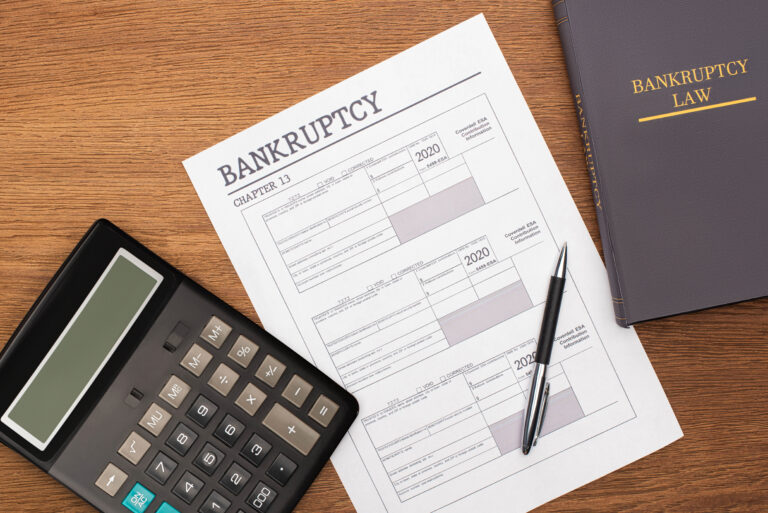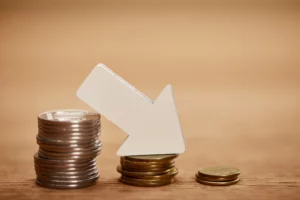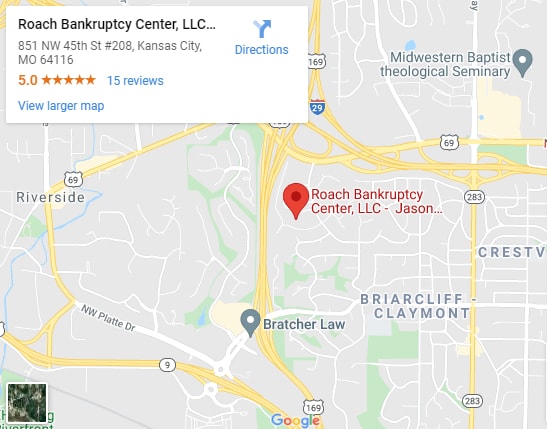Don’t Let Chapter 13 Stop You From Building Credit
How to build credit during Chapter 13? We understand you are dealing with debt and considering Chapter 13 bankruptcy. You are also worried about how it will affect your credit score, which is normal! It is great you are thinking about this early on because being informed is crucial to getting through this situation.
If you are stuck with a lot of debt, Chapter 13 bankruptcy can be a way to get things back on track. It lets you combine all your debts into one plan and pay them back within three to five years. This type of bankruptcy can help you improve your credit score as you make payments. But remember, you need the court’s permission to open any new credit cards or loans while in the program. Making all your payments on time is necessary for their approval.
Short Summary:
- Chapter 13 consolidates all debts in one plan by making a repayment plan to pay it within three to five years.
- There is an eligibility criteria to file for Chapter 13, and it offers more advantages than Chapter 7, like tailored debt repayment plans and protection of assets.
- Chapter 13 has three main stages: filing with the court, making payments, and debt discharge.
- Some strategies for credit improvement include disputing credit report errors and establishing positive payment histories with service providers.
What is Chapter 13 Bankruptcy?
Chapter 13 bankruptcy is a good plan for people with regular jobs who need help catching up on their bills. You work with the court to create a payment schedule or long-term debt repayment plan. You make payments for three or five years, depending on your income. You pay for five years if you earn more than most people in the state. But the court can let you pay for three years if needed.
Basically, Chapter 13 helps you get your finances back on track, so you can pay off your debts without losing everything you earned. Once you finish the plan, your remaining debt is wiped clean!
Am I Eligible for Chapter 13?
Before figuring out how to build credit during Chapter 13, check if you qualify first. Below is what you need to know:
- Anyone who works for themselves (like a freelancer or small business owner) can apply, but not businesses or partnerships.
- Your credit card debt, personal loans, and medical bills (unsecured debts) must be less than $394,725.
- Your mortgage, car loan, and other secured debts must be less than $1,184,200.
Before you apply:
- Check if you filed for bankruptcy in the past 180 days and got dismissed for not showing up in court, not following a court order, or your creditors asking for help. If so, you might not be eligible right now.
- If this is your first time filing in 180 days, you must take credit counseling from a government-approved agency. There are some exceptions for emergencies or lack of available agencies.
What are the Advantages of Chapter 13?
Not everyone qualifies for Chapter 7. There are some things it cannot do that Chapter 13 can. They are the following:
- Ideal for higher earners: Even if you make too much money for Chapter 7, you might still qualify for Chapter 13.
- Second chance: Filed for Chapter 7 before? Chapter 13 might be an option this time.
- Keep your stuff: You can catch up on missed payments for things like your house or car and keep them.
- Tackles tax debt: Got tax problems? Chapter 13 can help you pay them back over time.
- Manages student loans: Struggling with student loans? Chapter 13 can make them more manageable.
- Includes lawyer fees: Do not worry about upfront lawyer costs. You can include them in your payment plan.
Chapter 13 handles debts and fees that Chapter 7 cannot, so you can emerge from bankruptcy with a fresh financial start.
What is the Process of Chapter 13?
Filing for Chapter 13 bankruptcy can feel daunting. But understanding the process can ease your worries. We give you a breakdown of the three main stages, from start to finish:
- Getting Ready and Filing: This is where you gather your paperwork and file your case with the court. Think of it like getting organized before a big trip.
- Making Payments: You will start making monthly payments to a trustee who distributes the money to your creditors once your case is filed. It’s like paying off your debts in installments, like a manageable car loan.
- Debt Discharge: After you complete your payment plan, the court discharges your remaining eligible debts. That means you are no longer legally obligated to pay them.
How To Build Credit During Chapter 13
People going through Chapter 13 bankruptcy can sometimes take on new debt. However, they need the judge’s approval first. There must be a good reason, like needing a new car or fixing their home. Taking on this new debt can help their credit score if they make timely payments.
Taking out new loans is not the only option. Here’s some good news: there are probably ways to boost your score without borrowing more money.
Do you think there are mistakes on your credit report during Chapter 13? File disputes with the three main credit bureaus (Equifax, Experian, Transunion) for any debt you think is wrong. They will then contact the lender to get their side of the story.
If the lender does not respond to your dispute within a month, the credit bureau has to remove the debt. That is how some “credit fixers” clean up reports. If the wrong debt is gone, your credit score could jump in 45-60 days!
Challenging credit report mistakes can boost your score, but remember:
- It does not erase the debt itself. You still owe the money.
- The lender can try reporting it again later.
- It is a temporary fix, not a magic eraser.
Ask your phone, internet, utility, or streaming service companies to report your on-time payments to credit bureaus. That shows you are responsible with your money, even without taking out new loans.
Navigate Chapter 13 in Kansas City With Us for Optimal Credit Score!
If you are concerned about how to build credit during Chapter 13 in Kansas City, Missouri, worry no more! Our lawyer, Jason Roach, has been helping people with bankruptcy for over 15 years. He is an experienced bankruptcy attorney and has won awards for his work.
We handle Chapter 7, Chapter 13, and emergency filings for individuals only. We never work for creditors. We can help stop foreclosures, repossessions, lawsuits, and creditor hassles. We protect your home, car, paychecks, retirement, and belongings.
Let us achieve your desired financial freedom together! Get a free initial consultation today with our bankruptcy attorney!



